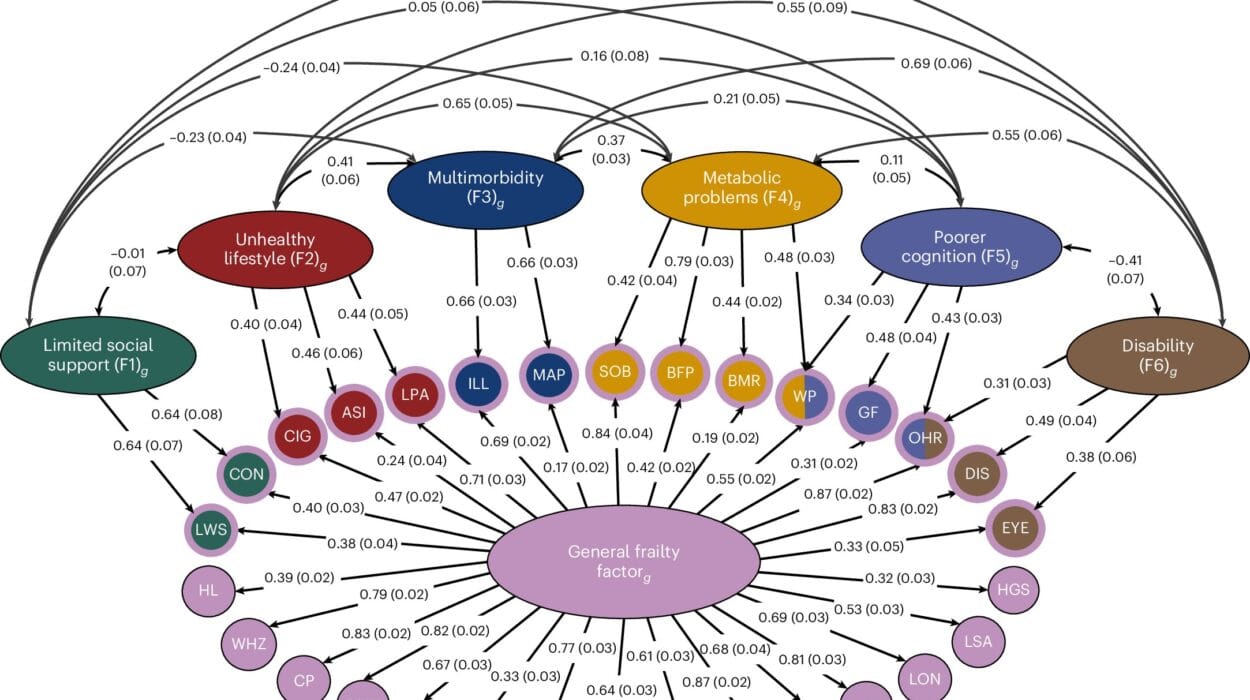She wakes up before the alarm rings, brain already buzzing. Who’s picking up the kids from school? Did she RSVP to that birthday party? Is there enough milk for tomorrow’s breakfast? Somewhere between brushing her teeth and checking work emails, she’s also ordering dog food online, making mental notes for the grocery list, and wondering if she remembered to sign that permission slip.
She hasn’t even had her coffee yet.
By evening, she’s running on fumes—but when she lies down in bed, sleep eludes her. The to-do list that was temporarily buried under layers of productivity and small wins begins to resurface. She goes over every task accomplished and every one she forgot. The day has ended, but the thinking hasn’t stopped.
This isn’t just tiredness. This is mental load—the invisible, relentless cognitive labor that women disproportionately carry. It’s what’s silently draining so many women, every single day. It’s not the kind of tired that sleep cures. It’s deeper, heavier, and largely misunderstood.
Defining the Invisible Burden
Mental load refers to the unceasing mental effort involved in managing a household, relationships, family schedules, workplace commitments, and emotional wellbeing—often without acknowledgement or support. Unlike physical labor, it’s intangible. You can’t see it. But it’s everywhere, threading itself through a woman’s day like an invisible web, binding her attention to an endless list of responsibilities.
It’s remembering the sizes of everyone’s clothes, noticing when the toothpaste is almost gone, being the family’s social secretary, and intuitively predicting who will need what and when. It’s not just doing the tasks—it’s anticipating, organizing, planning, tracking, and reminding others about them.
The most frustrating part? Even when help is offered—“Just tell me what to do”—the planning still falls on her. She becomes the project manager of life. Delegating becomes another task to manage, another burden in disguise.
A Gendered Phenomenon Rooted in Cultural Norms
Mental load is a gendered experience because our social structures have made it so. From a young age, girls are conditioned to notice and cater to the needs of others. They’re praised for being helpful, nurturing, and considerate. They learn that their value is often linked to how well they take care of people.
Meanwhile, boys are praised for independence and ambition. The emotional and logistical labor of managing life is rarely placed on their shoulders.
Fast forward to adulthood, and women often find themselves seamlessly stepping into domestic CEO roles—handling not just the tangible chores but the cognitive and emotional logistics that go along with them. It’s not that men don’t do anything. It’s that they’re often doing what they’re explicitly told to do, while women are doing all the thinking around it. This imbalance isn’t always intentional, but it’s systemic.
Mental load is rarely acknowledged in traditional notions of labor, because it doesn’t have visible output. But it’s labor all the same—just invisible, unpaid, and emotionally draining.
Motherhood Amplifies the Load
Becoming a mother doesn’t just multiply the to-do list—it transforms the mind into a perpetual forecasting machine. You don’t just feed a child; you think about their nutritional needs, make a note to refill baby wipes, remember which shirt they hate wearing on gym days, and schedule the next round of vaccinations.
Mothers are expected to notice everything: changes in mood, behavior, sleep, development, and even play preferences. They must know what shoe size their child wears at any given month, remember the names of all the classmates, and stay on top of every school holiday, sports event, and medical appointment. They’re the family’s historian, therapist, scheduler, educator, and comforter—often simultaneously.
Even in dual-working households where both parents contribute, the mental load still tends to skew toward the mother. It’s not about who’s doing the dishes—it’s about who’s remembering that dishes need to be done after dinner, before the ants arrive, and before the kid’s lunchbox needs packing. It’s about the emotional and strategic labor, not just the physical execution.
Work Outside the Home Doesn’t Cancel It Out
One of the biggest misconceptions about working women is that having a job somehow exempts them from domestic responsibilities. In reality, working women often experience a “second shift” after their formal workday ends.
They walk through the door and switch into parent-mode, chef-mode, cleaner-mode, and scheduler-mode—all while responding to late emails or prepping for the next workday. And their minds rarely clock out. The mental load doesn’t pause during a meeting or a Zoom call. It’s lurking in the background, like an app running silently but draining the battery.
Even high-powered, successful women—CEOs, doctors, professors—are not immune. Many will confess to managing not just company budgets and team goals, but also daycare calendars, holiday planning, and birthday gifts for in-laws.
This dual burden is one of the reasons women report higher levels of burnout, stress, and anxiety, even when their careers appear flourishing from the outside.
The Emotional Labor Add-On
To understand why mental load is so exhausting, you have to factor in emotional labor—the expectation that women should manage the feelings of others, while suppressing their own. They’re expected to stay calm when their child melts down, offer emotional support to their partner, mediate family arguments, remember who likes what food, and maintain a smile through it all.
They must be thoughtful gift-givers, sensitive listeners, and intuitive caretakers. They’re expected to check in on friends’ emotional health, keep track of birthdays, and send thank-you cards after events. In the workplace, they’re often cast in nurturing roles—organizing celebrations, smoothing over conflicts, and mentoring colleagues.
All of this takes emotional energy. And emotional labor isn’t just tiring—it’s exhausting in a way that drains identity. Many women reach a point where they don’t know who they are outside of their role as caretakers, planners, fixers.
Why This Exhaustion Feels Different
Mental load doesn’t just exhaust the body; it depletes the soul. It saps creativity, erodes joy, and breeds resentment. Women begin to feel like they’re failing, even when they’re doing everything. That constant cognitive processing leaves little space for self-care, spontaneity, or silence.
It’s the reason so many women say, “I feel tired all the time.” It’s why their rest never feels restorative. It’s why vacations don’t always feel like a break—because often, they’re still planning, packing, managing, and coordinating even while supposedly relaxing.
Over time, this mental depletion can lead to serious mental health consequences. Chronic stress, anxiety disorders, and even depression are common among women who shoulder disproportionate mental and emotional loads. The feeling of being constantly “on” rewires the brain’s stress response and triggers physiological symptoms—poor sleep, digestive issues, migraines, muscle tension.
And worse, because this load is invisible, women often blame themselves. They think they’re not “managing their time” well or need to “get more organized.” They don’t see that they’re burning out from carrying an entire world inside their head.
When Partners Don’t See the Load
In many relationships, one of the hardest parts is not the imbalance itself—but the denial of its existence. When women express frustration, they’re sometimes met with confusion: “Why are you so tired? I help around the house.”
But helping is not the same as sharing the mental load. Doing the dishes after being asked isn’t the same as remembering they need to be done in the first place. Offering to babysit so she can rest isn’t the same as being an equal parent.
When one person in a relationship carries the role of household manager and emotional regulator, even well-meaning help becomes ineffective. True relief only comes when both partners engage in the invisible labor—not just in doing, but in thinking, remembering, anticipating, and planning.
Acknowledgment is crucial. Mental load becomes lighter when it’s seen, shared, and valued.
What Real Equity Looks Like
True equity doesn’t come from evenly splitting chores—it comes from evenly sharing the mental responsibility. It means both partners being equally attuned to the needs of the household. It means both partners noticing what needs to be done, not waiting to be asked. It means taking initiative, absorbing some of that background noise, and easing the constant vigilance that defines a woman’s mental world.
It also means redefining roles. Just because one partner is better at planning doesn’t mean they should always do it. Competence should not be punished with added burden. It’s okay to let go of perfection and teach each other how to hold the weight more evenly.
Creating this balance requires honest conversations, vulnerability, and a deep understanding of what each person needs to feel supported. It’s about emotional partnership, not just physical collaboration.
Reclaiming Time, Space, and Identity
For women, shedding the mental load isn’t just about getting more help. It’s about reclaiming their mental bandwidth—making space for creativity, rest, passion, and personal ambition. It’s about no longer being the invisible administrator of life. It’s about saying: my brain is not a shared calendar. My heart is not a sponge for everyone’s needs.
Women need boundaries around their time and energy. They need to stop glorifying burnout as proof of their love. They need permission—from themselves and from society—to rest, to say no, to not always be the one who remembers everything.
This isn’t selfishness. It’s sustainability. It’s sanity. It’s survival.
A Cultural Shift Begins With Awareness
Changing the mental load dynamic starts with awareness—not just among couples, but within families, workplaces, and societies. Schools should teach emotional labor as part of life skills. Workplaces should understand the hidden toll of caregiving on women’s productivity. Partners must be taught to see what’s invisible—to recognize the thought processes behind every clean room, packed lunch, and family event.
We also need to model a different kind of womanhood to the next generation. Our daughters should not inherit exhaustion as a rite of passage. Our sons should not be taught to equate masculinity with emotional detachment or domestic incompetence. The future must look different.
The Path to Lightening the Load
The mental load will not disappear overnight. But it can be shared. It can be named. It can be addressed with empathy, intention, and effort.
Women do not need another planner, another app, another productivity hack. They need partners who see them. They need systems that support them. They need rest that is not earned through overwork. They need to stop being the fallback plan for everyone else’s needs.
They need space to simply be—not just do.






